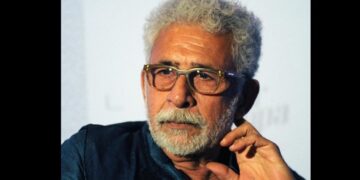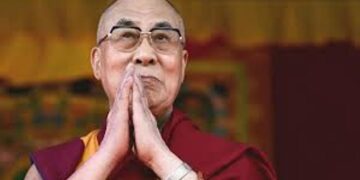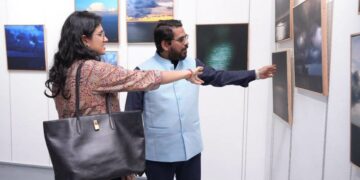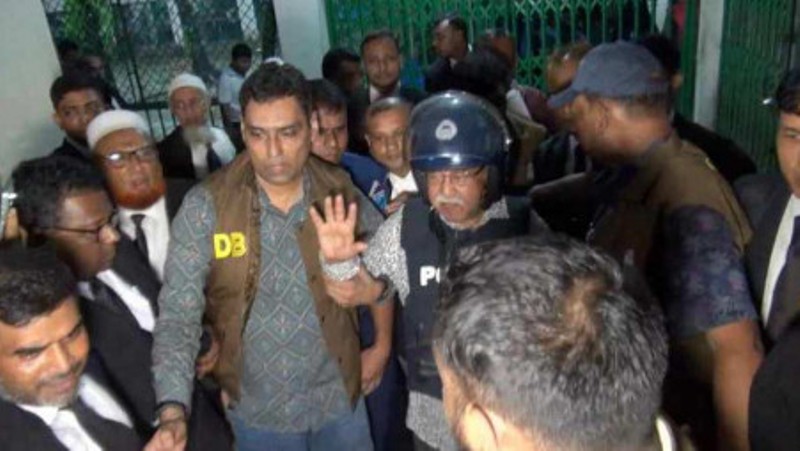The death of Nurul Majid Mahmud Humayun a few days ago raises the issue of the degree to which the rule of law, indeed the machinery of justice, has fallen silent in Bangladesh.
Humayun, minister for industries in the Awami League government till the cataclysmic developments of August last year, had been in incarceration, like scores of other political figures belonging to the Awami League.
He was never brought to trial. Nor was he accorded the facilities that are normally provided to jailed individuals when they fall ill in custody. Humayun died as a prisoner in ordinary circumstances in a hospital in Dhaka.
The former minister’s death raises a question that ought to have been asked by the international community in these past fourteen months since Bangladesh passed into anarchy and mob rule on the watch of a regime the legitimacy of which remains in doubt. In the years of Sheikh Hasina’s stewardship of the country, many and very loud were the voices of human rights activists and governments abroad about the alleged violation of fundamental rights and democratic freedoms in Bangladesh.
A systematic campaign went underway to vilify the government on the charge that it was failing to guarantee free expression in Bangladesh.
One did not quite disagree with the international community when it raised questions about the state of politics in the period of the Awami League government.
That there was much to have citizens worry about the state of the country are truths one does not ignore. Neither does one ignore that other aspect of life in Awami League times. It was during the sixteen-year governance of the country by Sheikh Hasina and her party that the media were free to comment on what they considered to be wrong policies pursued by the authorities.
Individuals arrested by the government were swiftly produced in court, with bail facilities being accorded to them.
In the past year and more, the entire situation in Bangladesh has gone through a state of decline reminiscent of medieval rule and fascist politics.
Together with the carefully planned assaults on every symbol of Bangladesh’s War of Liberation and indeed its rich cultural heritage, the humiliation heaped on prominent Bengalis, ranging from former ministers and lawmakers to judges to journalists to artistes to civil servants, has laid the country’s image low before the world.
Every individual taken into custody has been made to wear a helmet, don a police jacket, and be in handcuffs on their way to and back from court.
In a shocking, ugly manner, mobs comprising anti-Awami League lawyers and political elements have pounced on these arrestees in the premises of the court, hurling eggs and shoes at them. Once in the courtroom, these hapless individuals have heard judges deny them bail.
This is a gross travesty of the rule of law. The higher judiciary, which came into office after mobs forced the earlier body of High Court and Supreme Court justices to resign, has kept its silence on the situation.
Indeed, when advisers in the Yunus regime publicly proclaim that those arrested will have no recourse to bail, it is a dark commentary on the depths to which the state has been pushed in Bangladesh.
No lawyers are willing to appear in the defence of the prisoners in court out of fear. Almost all individuals arrested owing to their direct or indirect links with the Awami League have been slapped, rather incongruously, with charges of or abetment to murder.
In consequence, the nation is yet to see the trials of these detained individuals get underway. The Yunus regime has given no indication that a process of trials will commence anytime soon.
The situation is grave for Bangladesh. More than a year has gone by since Bangladesh’s prominent citizens, all of whom hold fealty to the nation’s history arising out of the struggle of 1971, were carted off to prison.
They have not had lawyers visit them, for that is an option not available to them. The ubiquitous rights bodies in the country, once vocal against the ‘repression’ perpetrated by the Awami League, have eerily remained silent on the sufferings being endured by the individuals now in jail.
The children of some of these individuals, and among them are the daughters of Asaduzzaman Noor, a prominent theatre activist and former minister for cultural affairs, and Shyamal Datta, a leading journalist and general secretary of the National Press Club, have been writing to individuals and organisations they believe will speak up for their fathers and for everyone lodged in prison by the current regime.
While rights bodies in Bangladesh have remained silent on the plight of the individuals in detention, human rights organisations abroad have appeared indifferent to the issue.
That is not only disappointing but also indicative of the latitude the Yunus regime is being given to perpetuate its misrule in the country.
Muhammad Yunus, on his trips abroad, has consistently touted the false narrative that the media in Bangladesh are now absolutely free and that journalists and others can write articles and commentaries critical of his regime. That simply is an avoidance of the truth.
In the first place, a good number of media organisations, having been commandeered by right-wing individuals, have been forced to sack their leading journalists and do not entertain articles critical of the regime or supportive of the Awami League.
In the second, the media themselves exercise self-censorship, the better to stay clear of mobs that might disrupt their normal activities.
In the recent past, newspaper owners, editors and staff have been subjected to vilification of the kind never before witnessed in Bangladesh’s history.
A growing culture of fear has led to media silence even as reports and commentaries vilifying the Hasina government are encouraged by those holding power at present.
The imperative today is for human rights bodies at home and abroad, together with governments which profess to operate on the basis of rule of law and which would like to see a democratic Bangladesh emerge in the times ahead, to raise the alarm over the manifest injustice Bangladesh’s people have been suffering from for the more than one year in which mob rule has seized the country.
It is important that the global media call out the Yunus regime on the gross violations of human rights that have been committed on its watch.
It is equally important that human rights organisations, legal bodies and journalists’ associations in Commonwealth countries and beyond undertake a focused campaign for justice to be applied to those who have languished in Bangladesh’s prisons since August 2024.
At the same time, it is of critical importance for these global bodies to inquire into the conditions in which those now in incarceration — and that includes both men and women — have been treated and are being treated in prison.
Access to them for human rights practitioners and legal counsel needs to be guaranteed, a point which urgently must be emphasised with the Yunus regime.
ALSO READ: Sheikh Hasina: Embodiment of purposeful leadership in Bangladesh
The ground realities in Bangladesh are important. That is where the world needs to go for it to have a proper and credible picture of the atmosphere of fear, intimidation and harassment now overshadowing life in the country.















